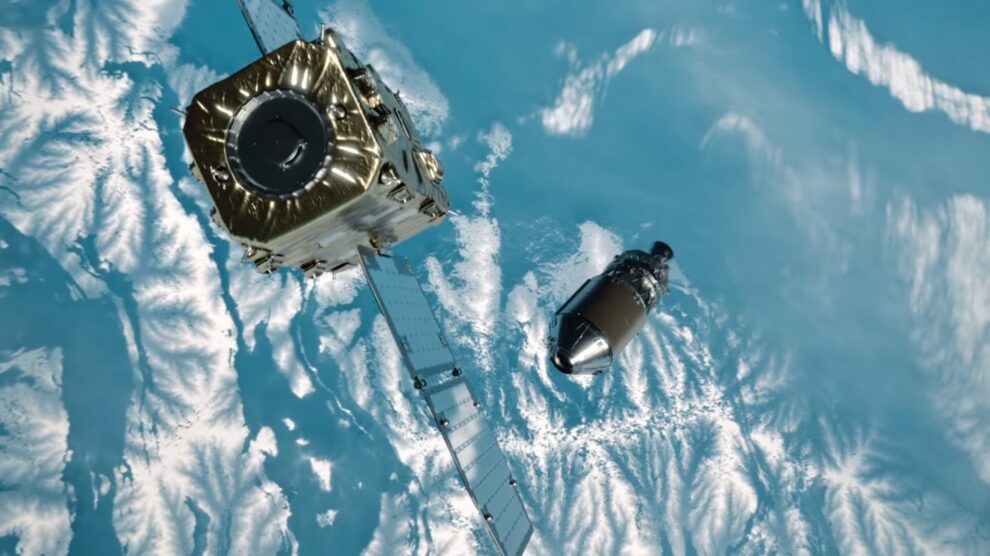In an unprecedented legal case, a Florida family has filed a lawsuit against NASA following an incident where a piece of space debris crashed through their roof. This event has brought the issue of space debris and its potential dangers into sharp focus, raising questions about liability and the challenges of managing objects in Earth’s orbit.

The Incident
Florida Family Sues NASA After Space Debris Crashes Through Roof
On March 8, 2024, residents of Naples, Florida, experienced an unexpected and alarming event when a metal object plummeted from the sky, piercing through the roof of a family home. The homeowner, Alejandro Otero, found himself at the center of a bizarre occurrence that would soon make headlines and legal history.
Identifying the Debris
Florida Family Sues NASA After Space Debris Crashes Through Roof
Subsequent investigation revealed the origin of the mysterious object:
- The debris was identified as a metal support component from a cargo pallet.
- This pallet had been used to hold aging batteries that were jettisoned from the International Space Station (ISS) in 2021.
- The incident highlights the long-term consequences of decisions made in space operations, as objects can remain in orbit for years before re-entering Earth’s atmosphere.
Legal Action
Florida Family Sues NASA After Space Debris Crashes Through Roof
In response to the damage caused by the falling debris, Alejandro Otero has taken an unprecedented step:
- Otero filed a lawsuit against NASA, seeking compensation for the damages to his property.
- This marks the first known lawsuit of its kind in the United States, potentially setting a legal precedent for future incidents involving space debris.
- The case is likely to reference international agreements such as the Space Liability Convention, which establishes principles of liability for damage caused by space objects.
NASA’s Response
Florida Family Sues NASA After Space Debris Crashes Through Roof
NASA has acknowledged the incident, stating:
- The agency is committed to responsible space operations and minimizing risks to people on Earth.
- NASA is likely to face scrutiny over its debris mitigation practices and protocols for deorbiting objects from the ISS.
- The outcome of this case could influence future policies and procedures for space agencies worldwide.
The Broader Context: Space Debris Concerns
Florida Family Sues NASA After Space Debris Crashes Through Roof
This incident brings attention to the growing problem of space debris:
- Earth’s orbit is increasingly cluttered with defunct satellites, spent rocket stages, and other human-made objects.
- Collisions between these objects can create even more debris, potentially leading to a cascading effect known as the Kessler Syndrome.
- Space agencies and private companies are exploring various solutions for debris mitigation, including active debris removal and improved spacecraft design.
Public Safety and Risk Assessment
Florida Family Sues NASA After Space Debris Crashes Through Roof
While the Naples incident is alarming, it’s important to contextualize the risk:
- The probability of being struck by falling space debris remains extremely low.
- However, as more objects are launched into space, the risk may increase without proper management.
- This event underscores the need for continued research and development in space debris tracking and prediction technologies.
Legal and Policy Implications
Florida Family Sues NASA After Space Debris Crashes Through Roof
The lawsuit against NASA could have far-reaching consequences:
- It may prompt a review of international space law and liability agreements.
- Space agencies and private companies might face increased pressure to develop more robust debris mitigation strategies.
- The case could lead to discussions about establishing clearer protocols for compensation in the event of damage caused by space debris.
Conclusion
Florida Family Sues NASA After Space Debris Crashes Through Roof
The lawsuit filed by the Florida family against NASA represents a unique intersection of space exploration, public safety, and legal responsibility. As the case unfolds, it will likely draw attention to the challenges of managing the growing population of objects in Earth’s orbit and the potential consequences for people on the ground. This incident serves as a reminder of the complexities involved in space operations and the ongoing need for innovation in debris mitigation and space traffic management.










Add Comment